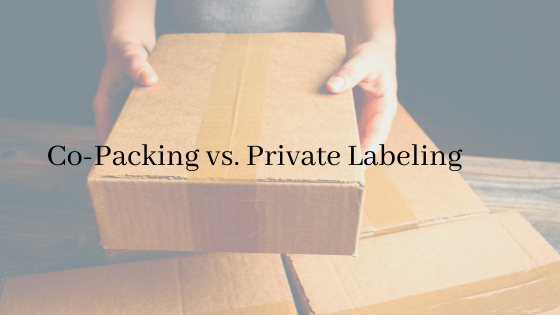A co-packing agreement is closely related to private label food manufacturing, but the two are distinctly different services.
Understanding the difference between these two is important because that will give you a clear picture of your options and rights to the propriety formula for the food products you own.
Co-Packing
The customer has all the rights to a proprietary formulation under a co-packing agreement. Although the manufacturer creates the product, co-packing usually requires the manufacturer to sign a non-disclosure agreement that does two things:
- Prevents the manufacturer from sharing the information relating to the customer’s product.
- Prevents the manufacturer from creating additional products outside the agreement.
Private Labeling
The private label agreement allows the food manufacturer to use its formulation in creating and packaging the product under the customer’s label. In other words, the propriety rights belong to the manufacturer.
A simpler way to understand the difference between co-packing vs. private labeling is to think of it this way:
- Co-packing = your product with your label
- Private label = a manufacturer’s product with your label
Which Ownership Option Is Best For Your Business?
In a nutshell, co-packing is best suitable for:
- Food and beverage owners looking to bring a new product to the market
- Restaurants that have a special sauce
- Individual chefs who own special and popular recipe
On the other hand, private labeling works great for:
- Large retailers
- Small food businesses that want their names on their products
- Customers who want custom branding on items they gift to others
Having listed the above, it is crucial to consider the following factors when trying to decide on co-packing vs. private labeling:
- Responsibility: Is your company or business prepared to deal with all the hassles of navigating propriety laws? If you would rather skip this burden, a co-packing agreement is your best bet.
- Cost: A co-packing arrangement might be less expensive than a private label, depending on the contract negotiated.
- Marketing: If you prefer a private label agreement, it is usually a thing if the manufacturer agrees to exclusive production. But regardless of whether you choose co-packing or private label, your marketing efforts can receive a huge boost with exclusivity.
- Logistics: Not all manufacturers have the same capability and capacity, and this is something to keep in mind when considering a co-packing arrangement. Securing a good co-packing arrangement is great but it can be challenging in many cases to find a manufacturer that checks everything you want.
What The Greater Goods Can Do For Your Business
The Greater Goods offers a ton of flexibility that business owners can explore. You can take advantage of what we offer while enjoying the benefits of a first-rate food consulting firm.
It is crucial to read and understand the fine print before you sign an agreement with a manufacturer. As an experienced food consulting firm, we can also help you in this regard.
Book a free consultation today and learn more about the nitty-gritty of co-packing vs. private labeling.
